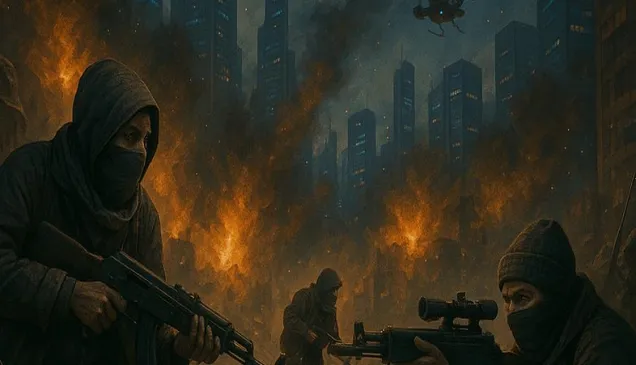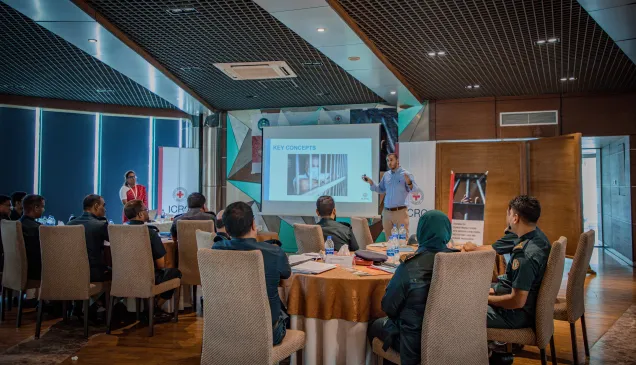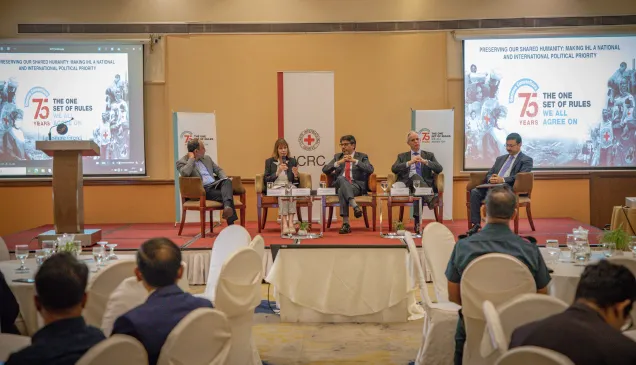Bangladesh: University of Dhaka wins national rounds of the 13th Henry Dunant Memorial Moot Court
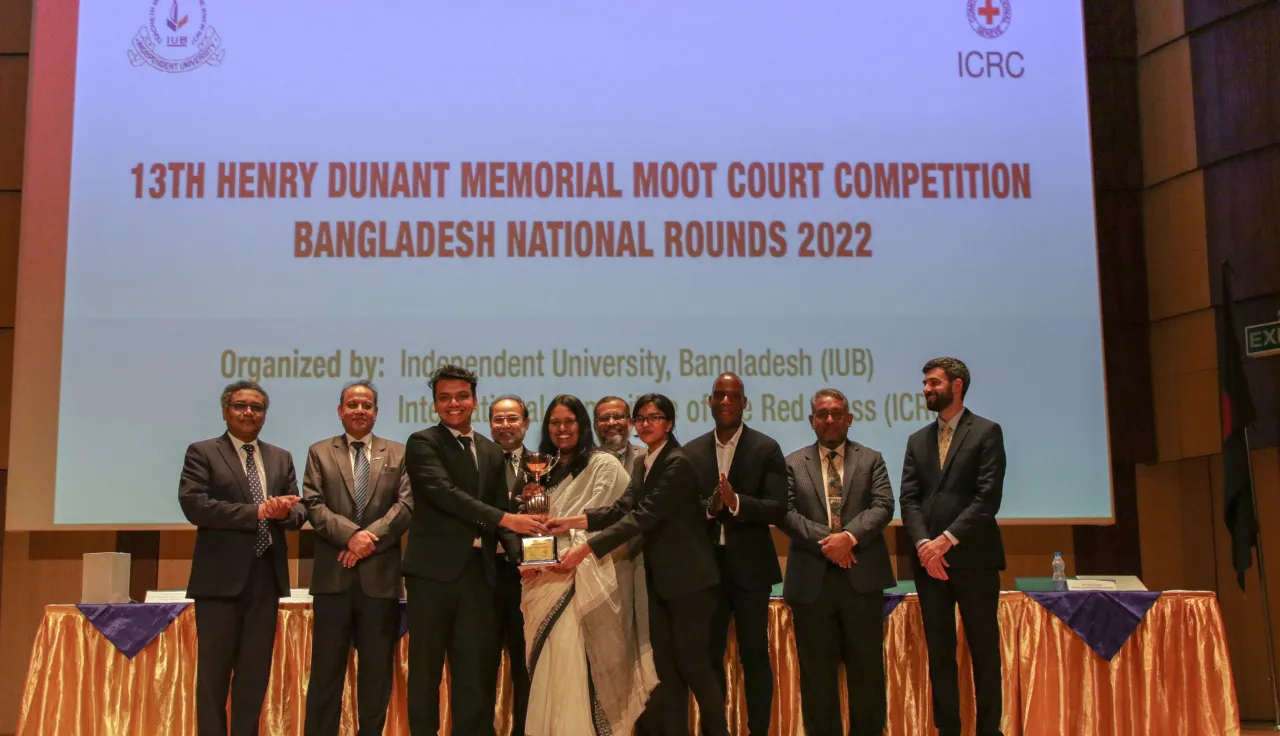
The International Committee of the Red Cross (ICRC), together with Independent University, Bangladesh (IUB), organized the national rounds of the 13th Henry Dunant Memorial Moot Court Competition on international humanitarian law (IHL).
The main objective of the competition is to raise awareness and interest in IHL and develop advocacy skills of law students through a friendly competition. More than 81 law students from 27 universities across the country took part in the competition from 22 to 24 September 2022.
The students participated in several rounds of mooting, using their advocacy and research abilities to argue a hypothetical case before a panel at the pretrial stage of the International Criminal Court. The case covered issues relating to the protection of the natural environment, protection of civilians in armed conflict and other IHL themes. The jury included academics, judges, government officials and legal practitioners, while judges from the Bangladesh Supreme Court were part of the panel for the last two rounds of the competition.
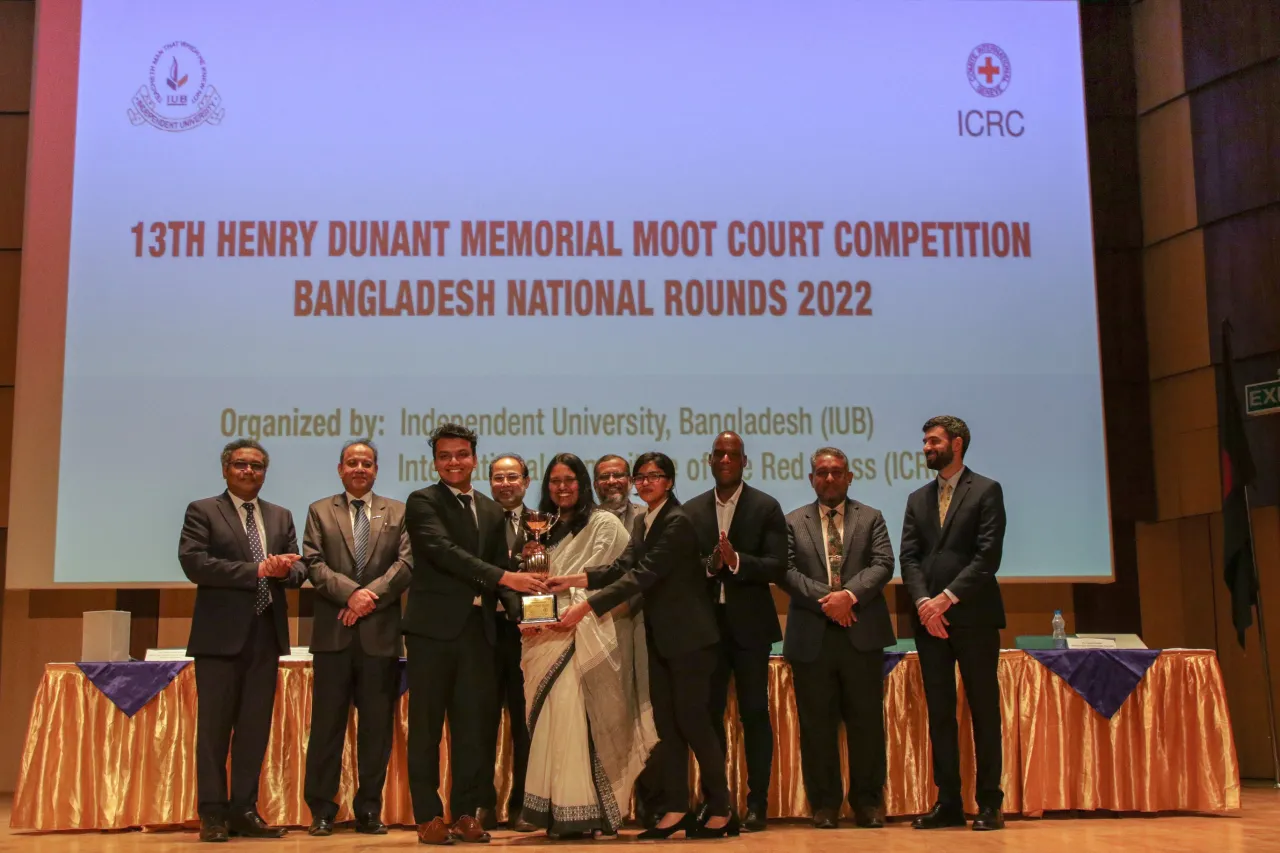
The team from University of Dhaka receives the trophy for winning the 13th Henry Dunant Memorial Moot Court Competition.
The team from University of Dhaka was declared the winner of the competition following an intense final round against Jahangirnagar University on 24 September at the IUB campus in Dhaka. Commenting on their achievement, the winning team stated, "We have learnt a lot during this competition. Such events help to reinforce the significance of IHL and we hope that we are able to add value to its contextualized implementation in Bangladesh in the future." The top two teams from the national rounds will represent Bangladesh in the South Asia regional round to be held in Kathmandu, Nepal in December 2022.
Delivering a speech, Justice Obaidul Hassan said, "Law students should engage proactively in moot court competitions to realize the full circle of professional knowledge." He stressed the importance of students visiting a trial court to observe litigations and enhance their practical knowledge.
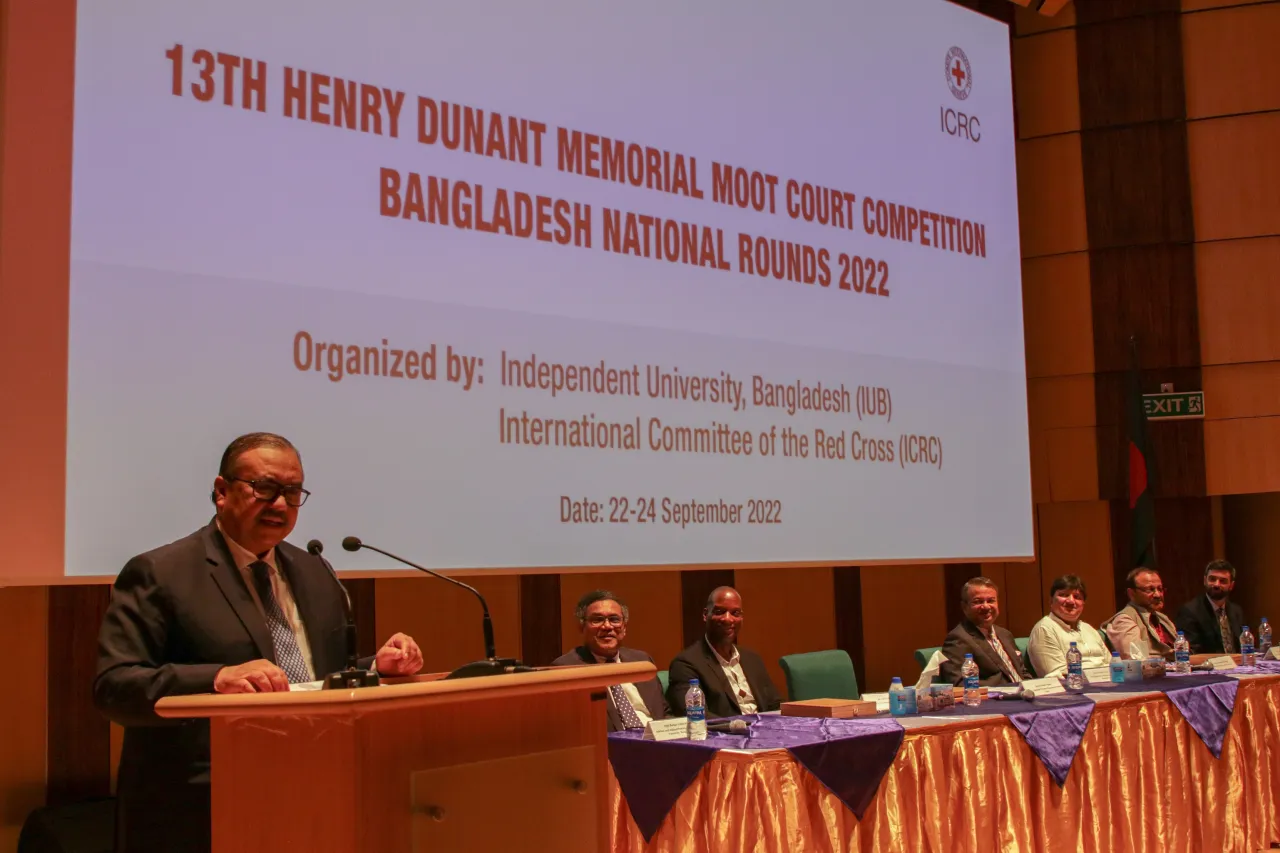
Justice Obaidul Hassan inaugurated the 13th Henry Dunant Memorial Moot Court Competition on IHL.
"The basic spirit of international humanitarian law is a universal humanitarian principle that preserves human dignity even during war," said Fabrice Edouard, deputy head of the ICRC delegation in Bangladesh. "I am glad to see enthusiastic young students participating in the competition that serves as an excellent forum to promote IHL," he added.
Professor Biswajit Chanda, a member of the University Grants Commission, said that law graduates should have a solid theoretical and philosophical foundation to ensure success in their professional life.
Tanweer Hasan, vice-chancellor of IUB, said, "A moot court or mock trial can be the only way for law students to experience reality before entering the practical world. It has been a distinct privilege for IUB to have partnered with the ICRC in bringing this prestigious competition to Bangladesh."
Professor Borhan Uddin Khan, adviser at the Department of Law, IUB, said, "By participating in this competition, students can sharpen their advocacy skills, learn team building and create a new network."
Professor Niaz Ahmed Khan, pro-vice-chancellor of IUB, as well as legal advisers from the ICRC were also present. Named after Henry Dunant, the founder of the ICRC and the International Red Cross and Red Crescent Movement, the competition has grown steadily in both reputation and status since its inception in 2005.
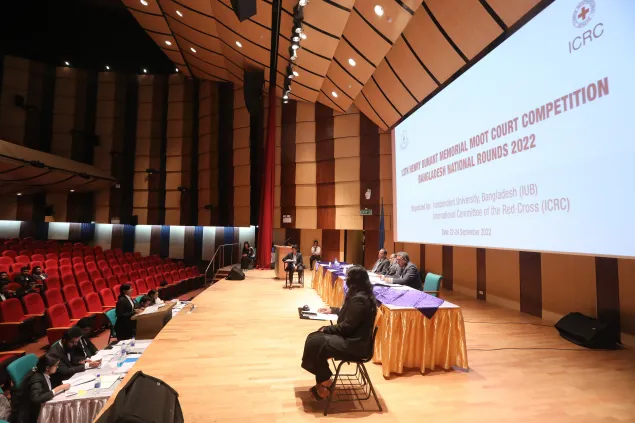
The top two teams competing in the final before the panel of judges from the Bangladesh Supreme Court.
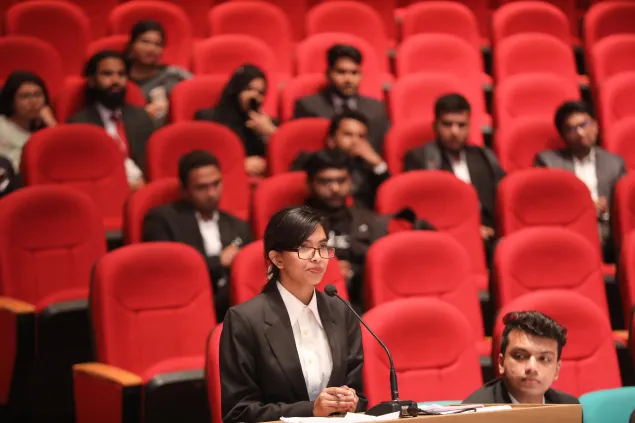
Final moment of the national round of the 13th Henry Dunant Memorial Moot Court Competition in Bangladesh.
As part of its mandate to spread knowledge of IHL, the ICRC in Bangladesh promotes humanitarian law through education, training and the moot court competition involving a wide range of groups and individuals, including legal professionals, law students, instructors, decision makers, policymakers and the armed forces.

